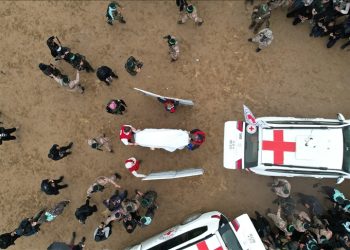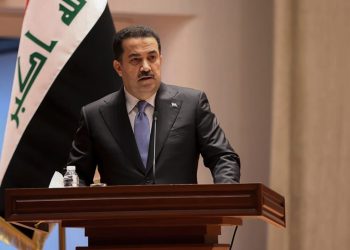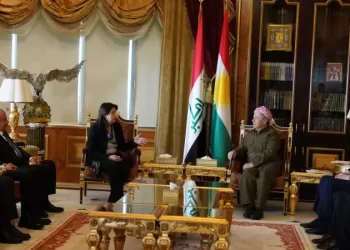In the wake of the death of Yahya Sinwar, Hamas is working to frame the loss of its leader as a testament to the organization’s enduring resilience and commitment to its cause. The 62-year-old veteran, who was killed on Thursday while fighting on the frontline in Gaza, is being portrayed as a symbol of defiance and perseverance, armed and wearing the iconic Palestinian keffiyeh.
Hamas has emphasized that despite the assassination of a series of its leaders by Israel, the organization has survived and continued its struggle for 37 years. This narrative is aimed at reinforcing the group’s image as a steadfast resistance movement, undeterred by the loss of key figures.
In a statement, Bassem Naim, a spokesperson for Hamas and member of its leadership council, acknowledged the profound pain and distress caused by the loss of “beloved people, especially extraordinary leaders like ours.” However, he expressed confidence in the group’s eventual victory, asserting that “this is the outcome for all people who fought for their liberty.”
Naim highlighted the previous assassinations of prominent Hamas leaders, including Sheikh Ahmed Yassin, the charismatic cleric who founded the organization, and Abdel Aziz al-Rantisi, Yassin’s successor. He pointed to these events as examples of how Hamas has emerged stronger and more popular each time, despite the challenges it has faced.
The rhetoric of resilience and defiance is a key component of Hamas’s strategy to maintain morale and support among its followers. By framing Sinwar’s death as a victory, the organization seeks to galvanize its base and project an image of unwavering determination.
However, the reality on the ground presents a more complex picture. Since the surprise attack launched into Israel by Sinwar just over a year ago, Hamas has suffered significant losses. A series of top officials have been killed in Israeli strikes, including Ismail Haniyeh, Sinwar’s predecessor at the head of the organization, who was killed in a blast in a government guesthouse in Tehran in July.
In addition to these high-profile assassinations, thousands of lower-level officials, administrators, commanders, and foot soldiers have also been killed. The exact number is difficult to calculate, but even if Israeli claims appear exaggerated, the toll has been devastating for Hamas.
The loss of experienced leaders and personnel poses a significant challenge for the organization, impacting its operational capabilities and strategic planning. While Hamas has demonstrated an ability to adapt and regroup in the past, the cumulative effect of these losses cannot be ignored.
The ongoing conflict between Israel and Hamas is part of a broader struggle that has seen repeated cycles of violence and attempts at peace. The death of Sinwar is a reminder of the complexities and challenges inherent in resolving such a deeply rooted conflict, where political, territorial, and ideological differences continue to fuel hostilities.
For the people of Gaza, the ongoing conflict continues to exact a heavy toll. The relentless military operations have devastated communities, leaving many without homes or access to essential services. The loss of life and destruction of infrastructure have created a humanitarian crisis that requires urgent attention and support from the international community.
The international community has expressed concern over the escalating violence and its impact on civilian populations. Calls for an immediate ceasefire and humanitarian access to Gaza have been echoed by various countries and organizations, emphasizing the urgent need for a resolution that prioritizes the protection of civilian lives.
Efforts to broker a lasting peace have been complicated by political and territorial disputes, as well as the broader regional context. The involvement of international actors is crucial in this regard, as they work to address the underlying issues and facilitate dialogue between the parties.
As the situation unfolds, the focus remains on the immediate need for a ceasefire and the protection of civilian lives. The international community must continue to advocate for a resolution that prioritizes humanitarian concerns and addresses the root causes of the conflict.
Hamas’s framing of Yahya Sinwar’s death as a symbol of resilience reflects the organization’s determination to continue its struggle despite significant challenges. While the loss of key leaders poses difficulties, the group’s narrative of defiance and perseverance aims to maintain support and morale among its followers. As the conflict continues, the hope for peace and justice remains a guiding light for those affected by the ongoing hostilities.








